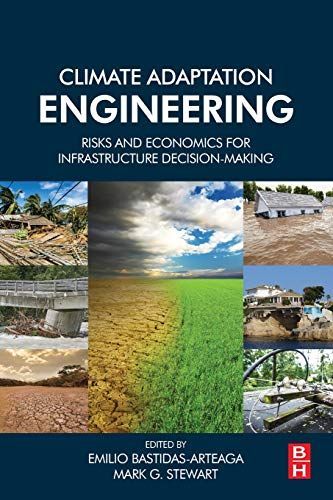
Climate Adaptation Engineering Risks and Economics for Infrastructure Decision-Making
Climate Adaptation Engineering defines the measures taken to reduce vulnerability and increase the resiliency of built infrastructure. This includes enhancement of design standards, structural strengthening, utilisation of new materials, and changes to inspection and maintenance regimes, etc. The book examines the known effects and relationships of climate change variables on infrastructure and risk-management policies. Rich with case studies, this resource will enable engineers to develop a long-term, self-sustained assessment capacity and more effective risk-management strategies. The book's authors also take a long-term view, dealing with several aspects of climate change. The text has been written in a style accessible to technical and non-technical readers with a focus on practical decision outcomes. Provides climate scenarios and their likelihoods, hazard modelling (wind, flood, heatwaves, etc.), infrastructure vulnerability, resilience?or exposure (likelihood and extent of damage) Introduces the key concepts needed to assess the risks, costs and?benefits of future proofing infrastructures in a changing climate Includes case studies authored by experts from around the world